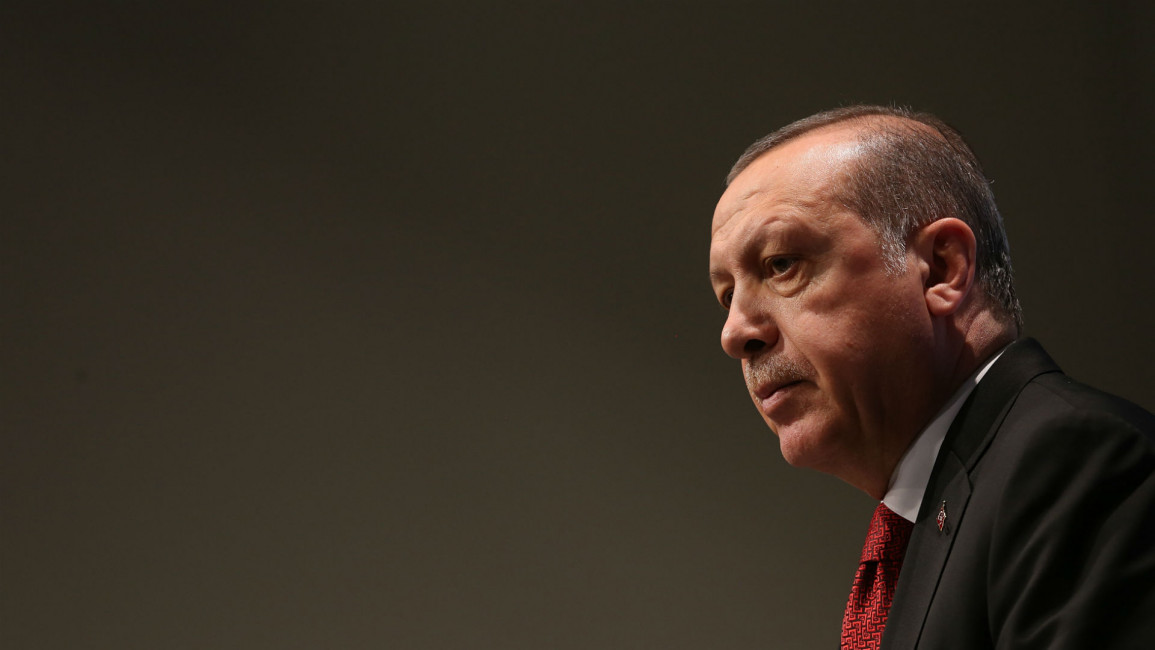Turkey dismisses more than 2,700 in latest post-coup purges
In a separate emergency decree, the defence procurement agency was ordered to answer to President Recep Tayyip Erdogan instead of the defence ministry, in a move widely viewed as a further expansion of his powers.
Turkey's intelligence service (MIT) also came under Erdogan's control in August.
A total of 2,756 people including academics, soldiers and military personal were removed from different bodies including the interior, foreign and defence ministries, according to the Official Gazette.
All those dismissed were either members of "terror" organisations or had links to structures which were acting against national security, it said.
Seventeen Turkish institutions were also ordered to close, including two newspapers and seven associations.
'Virus' of Gulen
More than 140,000 people including judges, lawyers and academics have been sacked or suspended since a failed coup in July last year, while some 55,000 people have been arrested over suspected links to US-based Islamic cleric Fethullah Gulen and the coup attempt.
Turkey claims Gulen and his Hizmet (service) movement, which it calls the "Fethullah Terrorist Organisation", ordered and conducted the attempted coup.
Gulen, who has lived in self-imposed exile in the US state of Pennsylvania since 1999, denies any links to terrorism and the failed putsch.
Erdogan, who has also accused Gulen and his followers of infiltrating state institutions, has said the sackings were necessary to remove what he called the "virus" of Gulen's influence from state bodies.
But on Sunday, Prime Minister Binali Yildirim said Turkey would hire 110,000 public sector employees in 2018, including 20,000 teachers, 36,000 health sector workers and 15,000 people to work for the justice ministry. Thousands of judges and prosecutors have been sacked in the purges.
"Thus in the ministries and state departments, there will not be a problem of "'disruption due to lack of personnel'," Yildirim said in televised comments.
Critics accuse the government of using state of emergency legislation to target opponents, including opposition journalists and pro-Kurdish critics.
The co-leader of the main pro-Kurdish opposition Peoples' Democratic Party, Selahattin Demirtas, is among those detained on terrorism charges, something he denies.
Uniforms for suspects
The decree on dismissals was published alongside another announcement that men accused of "acting against the constitutional order" would have to wear a single colour uniform, either brown or grey, during court hearings.
The uniform will also apply to those accused of attempting to abolish the Turkish government and will come into force next month.
Erdogan previously said that alleged coup-plotters would wear clothing similar to the notorious orange jumpsuits used at the US military prison in Guantanamo Bay.
The move is in response to a man, accused of plotting to assassinate Erdogan, appearing in court in July wearing a white "Hero" T-shirt.
Erdogan on Sunday said the decision about the uniforms was a wish from "victims, those wronged".
"They won't be able to appear in court with a tie, in an ostentatious way," he said.



